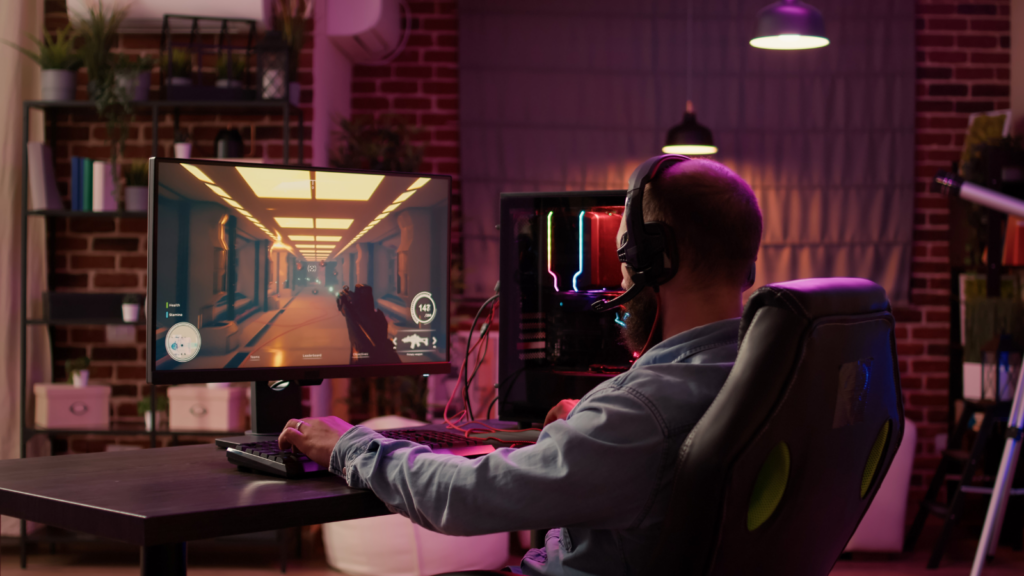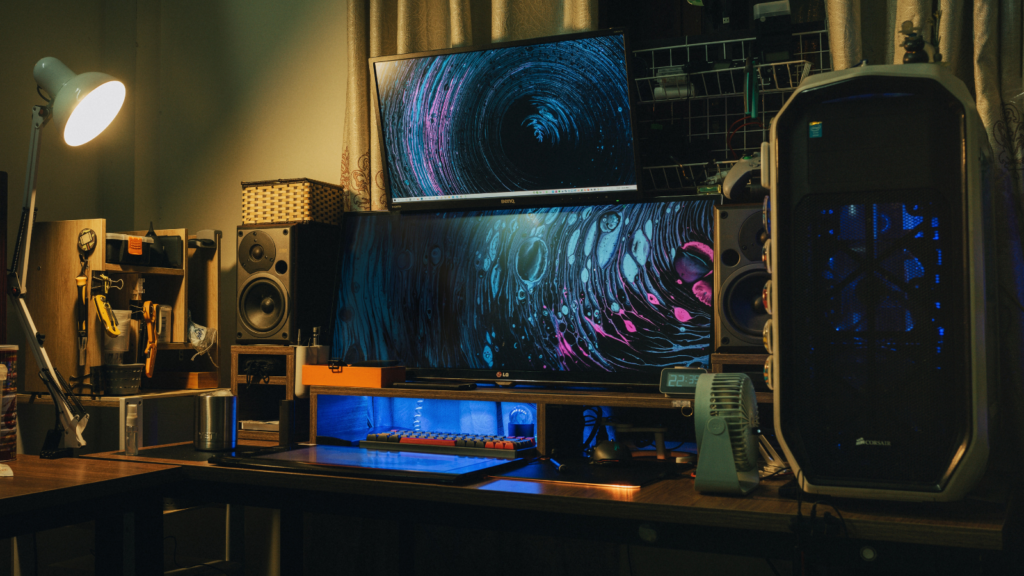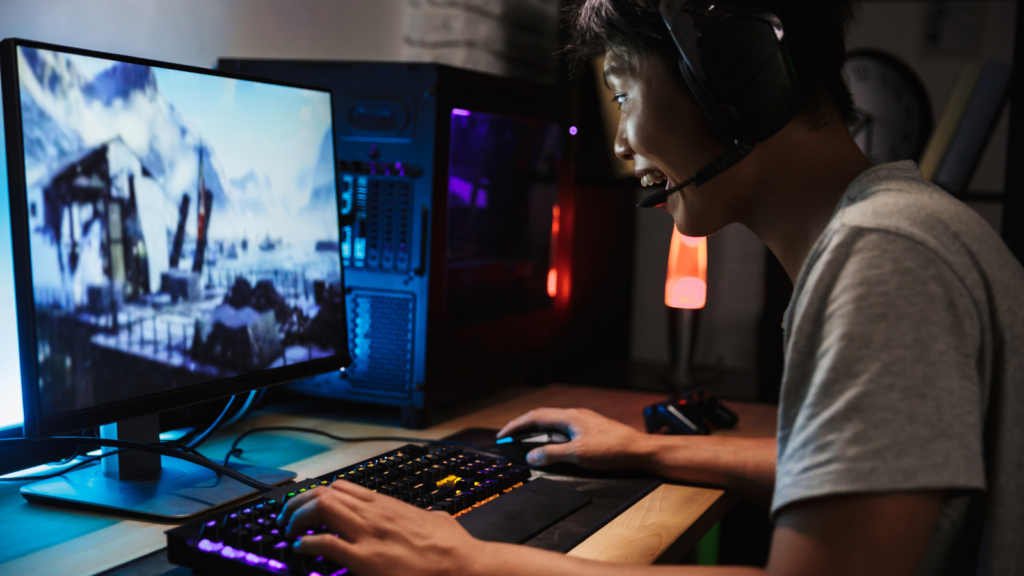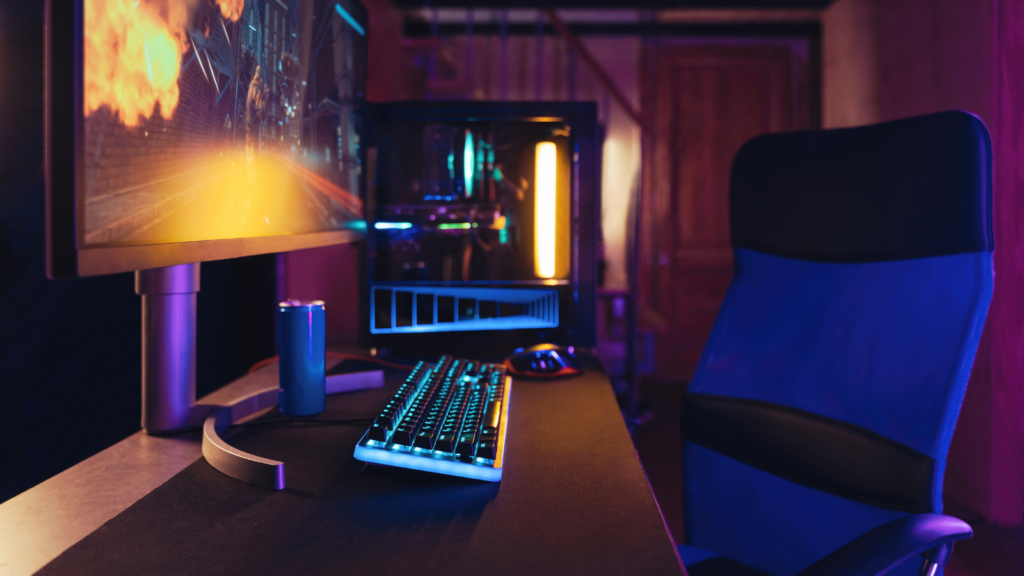In the world of gaming, there’s a common misconception that only high-end, expensive PCs can deliver a satisfying gaming experience. But that’s not always the case. Enter the realm of casual gaming PCs, where affordability meets performance and accessibility.
Casual gaming PCs are the unsung heroes of the gaming universe. They’re designed for gamers who love to dive into their favorite titles without breaking the bank.
So, whether you’re a weekend warrior or a gaming enthusiast looking for a cost-effective solution, a casual gaming PC might just be the perfect fit. Dive into the article to explore more about these budget-friendly gaming beasts.
Casual Gaming PC

Casual gaming PCs provide a balance of affordability and performance. These machines don’t flaunt the top-tier specifications of their high-end counterparts, yet they deliver a satisfying gaming experience. Equally suited for laid-back gamers and budget-minded enthusiasts, they prove that exceptional gaming doesn’t always demand a hefty price tag.
A casual gaming PC is, in essence, a cost-effective solution for gamers who don’t necessarily prioritize the most advanced specifications. These users seek fluid gameplay and a good overall experience, irrespective of their hardware’s exceptional prowess. Contrary to popular belief, many popular and enjoyable games run smoothly on such PCs, shattering the myth that quality gaming demands expensive hardware.
Key Components of a Casual Gaming PC

Casual gaming PCs strike a balance between cost and capabilities by prioritizing key components that significantly influence gaming performance.
- Processor (CPU): The processor works like the brain of the PC, controlling all functions and operations. Casual Gaming PCs most often feature mid-tier processors, which offer capable yet affordable performance.
- Graphics Card (GPU): The GPU handles graphics-intensive tasks. In casual gaming PCs, the GPU may not be the latest model, but it will definitely support fluid gameplay in a multitude of games.
- RAM: Random Access Memory (RAM) temporarily stores data for quick accessibility. Casual gaming PCs usually have an adequate amount of RAM to run games smoothly.
- Storage: Storage impacts game load times and overall system speed. Most casual gaming PCs offer a blend of Solid State Drives (SSD) and Hard Disk Drives (HDD) for optimal storage configuration. SSDs deliver faster load times, while HDDs offer ample space at a more affordable price.
Choosing the Right Casual Gaming PC
Choosing a casual gaming PC involves balancing budget considerations, performance requirements, and assessing entry-level gaming PCs. In the quest for a casual gaming PC, these factors play a pivotal role.
Budget Considerations
The vital part of choosing a casual gaming PC involves setting a budget. Avoid pursuing premium models with hefty price tags, aiming for balance between cost and capabilities instead. Seek PCs with mid-tier processors, capable GPUs, sufficient RAM, and a mix of SSDs and HDDs for storage, as introduced previously. These specifications offer great value without draining players’ wallets.
Performance Requirements

A critical aspect of the decision-making for a casual gaming PC rests on performance requirements. Although these PCs do not require top-of-the-line specifications, they must maintain an enjoyable gameplay experience. This asks for a balance.
Expect mid-tier CPUs, such as Intel’s i5 or AMD’s Ryzen 5. Similarly, GPUs don’t necessarily need to be top-tier, with models like Nvidia’s GeForce GTX 1650 or the AMD Radeon RX 570 providing sufficient performance. A base standard of 8GB RAM fulfills most casual gaming needs, complemented by an SSD for faster load times and an HDD for storage.
Go-to Choice For Gamers
Casual gaming PC have proven themselves as the go-to choice for gamers seeking a balance between affordability and performance. They’ve debunked the myth that you need to break the bank for a quality gaming experience. With the right components, even mid-tier processors and GPUs can deliver a satisfying gaming experience. Storage solutions like a mix of SSDs and HDDs further enhance the performance without inflating the cost. When it comes to choosing a casual gaming PC, it’s all about understanding your budget and performance requirements.

